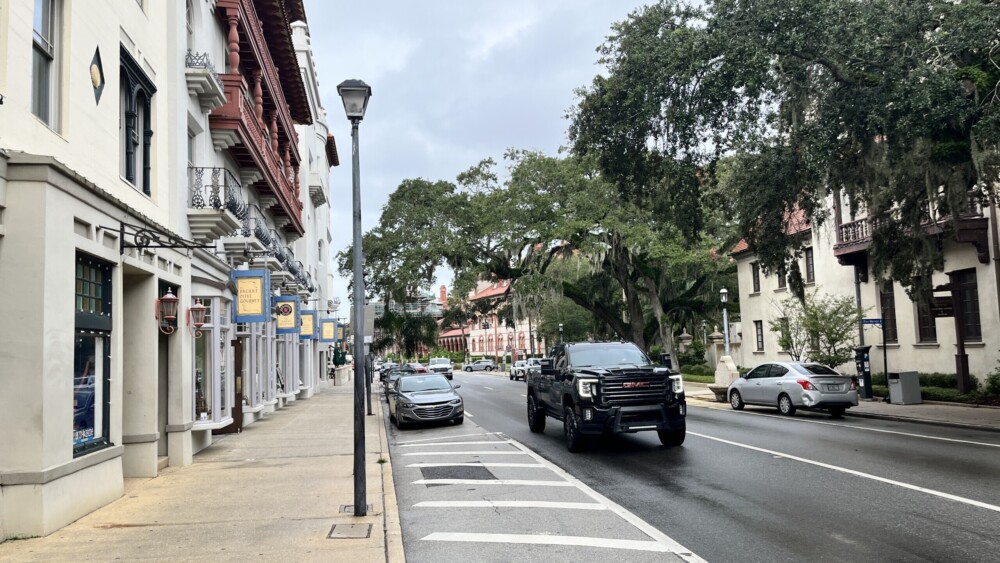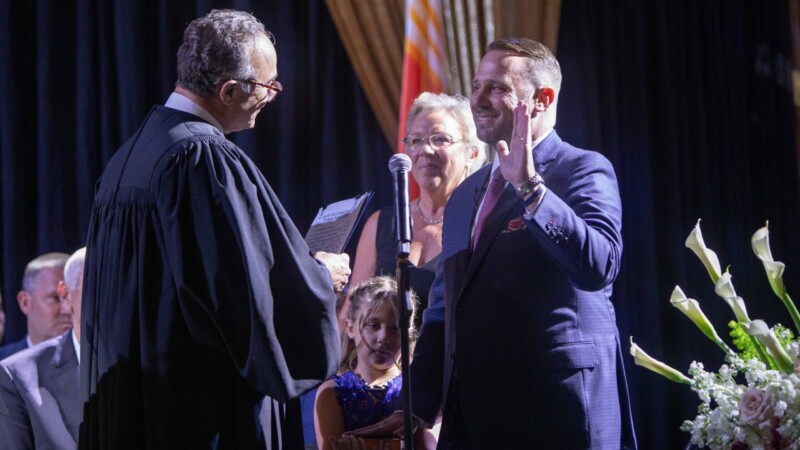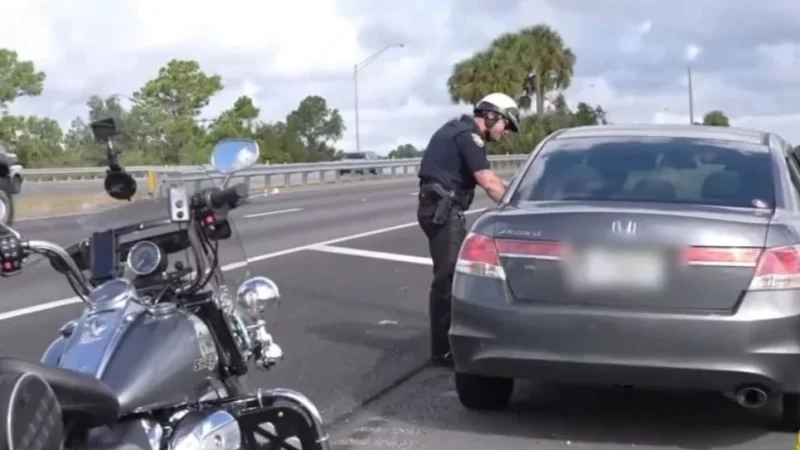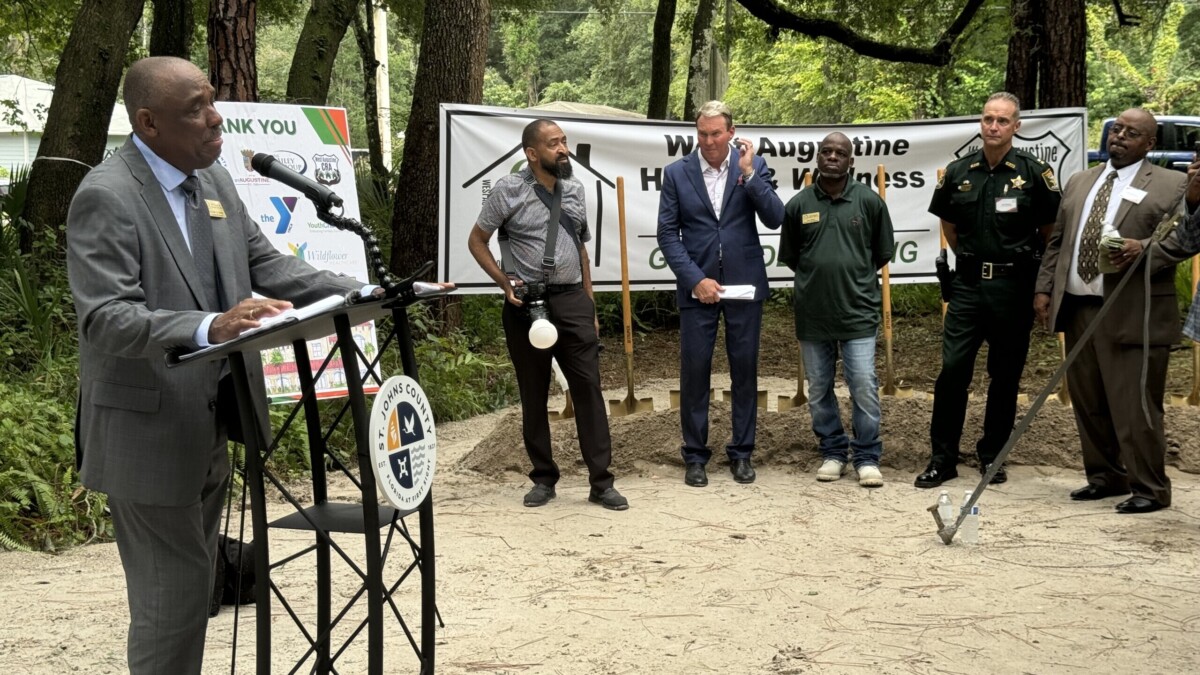St. Augustine plans to turn a major historic Downtown thoroughfare into “the best mile in Florida,” but some cyclists are feeling left out of the big plans to spruce up King Street.
The St. Augustine City Commission last week approved the plans to change the traffic pattern along King Street from Malaga Street to the Bridge of Lions, to the tune of $18 million. With the city’s taking control of the road from the state, its main goals are to beautify the corridor, add pedestrian crossings and make the traffic flow more efficiently around the Plaza de la Constitución.
See the full overview of the King Street plans.
The improvements, Public Works Director Reuben Franklin says, should make engaging with the city’s history a better experience for everyone.
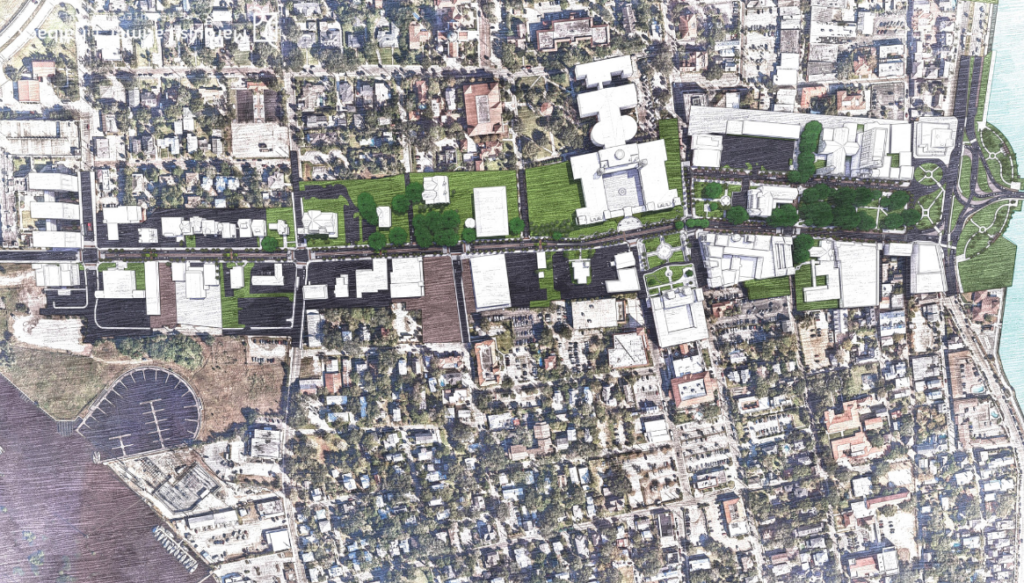
Between eliminating curbs in some areas, turning Cathedral Place — now a two-lane road with parking on both sides — into a one-lane road with limited on-street parking, and transforming the area around the historic plaza into a quasi-roundabout, Franklin says traffic will move much smoother.
But while the plan promotes modes of transportation other than cars by eliminating 31 parking spots and potentially lowering the speed limit, early plans to include a bike lane fell through.
“We’re trying to be creative with the limited amount of room we do have,” Franklin tells Jacksonville Today.
The city doesn’t have unlimited space to work with — the project area is hemmed in by historic buildings on all sides. To accommodate bicycles, painted arrows indicating that cars should share the road, also called “sharrows,” will be painted along King Street.
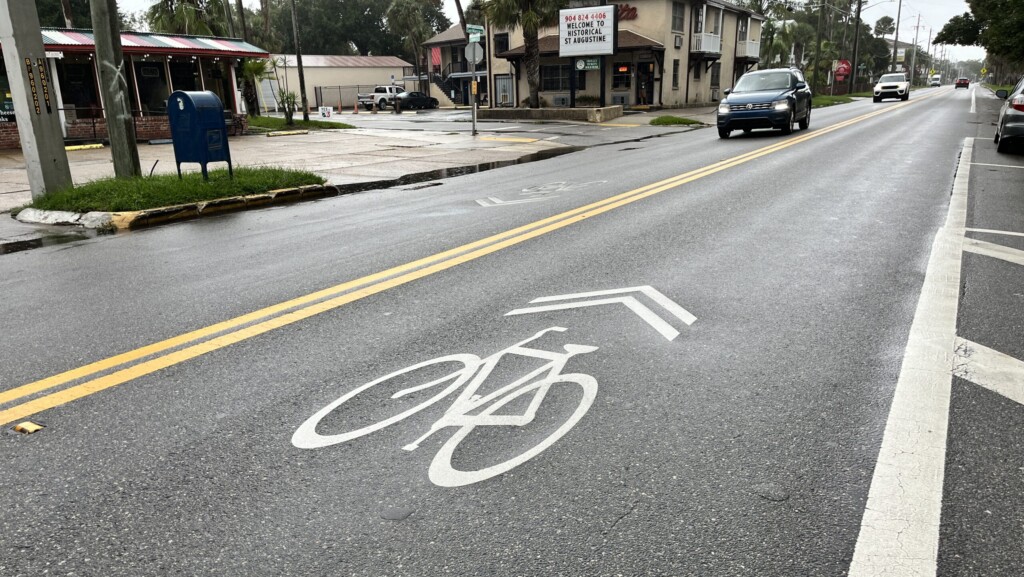
“I think it’s going to be a much nicer experience for cyclists who are sharing the lane with motor vehicles,” Franklin says.
If necessary, he adds, bikes could also move to the sidewalks that will be widened during the project.
Cyclist Teresa Rose isn’t sold. She works as a mechanic at Sprockets Bike Shop in St. Augustine and organizes group rides with the West Augustine Wheelers.
“Bicycles need their own lane,” Rose says, “or some attitude needs to change with people in the Downtown area.”
She would know — Rose has been hit while biking twice now, once in St. Augustine and once near Palatka. She also lost her friend Katey Usina in 2020 when Usina was hit by a truck and killed near the intersection of US-1 and King Street.
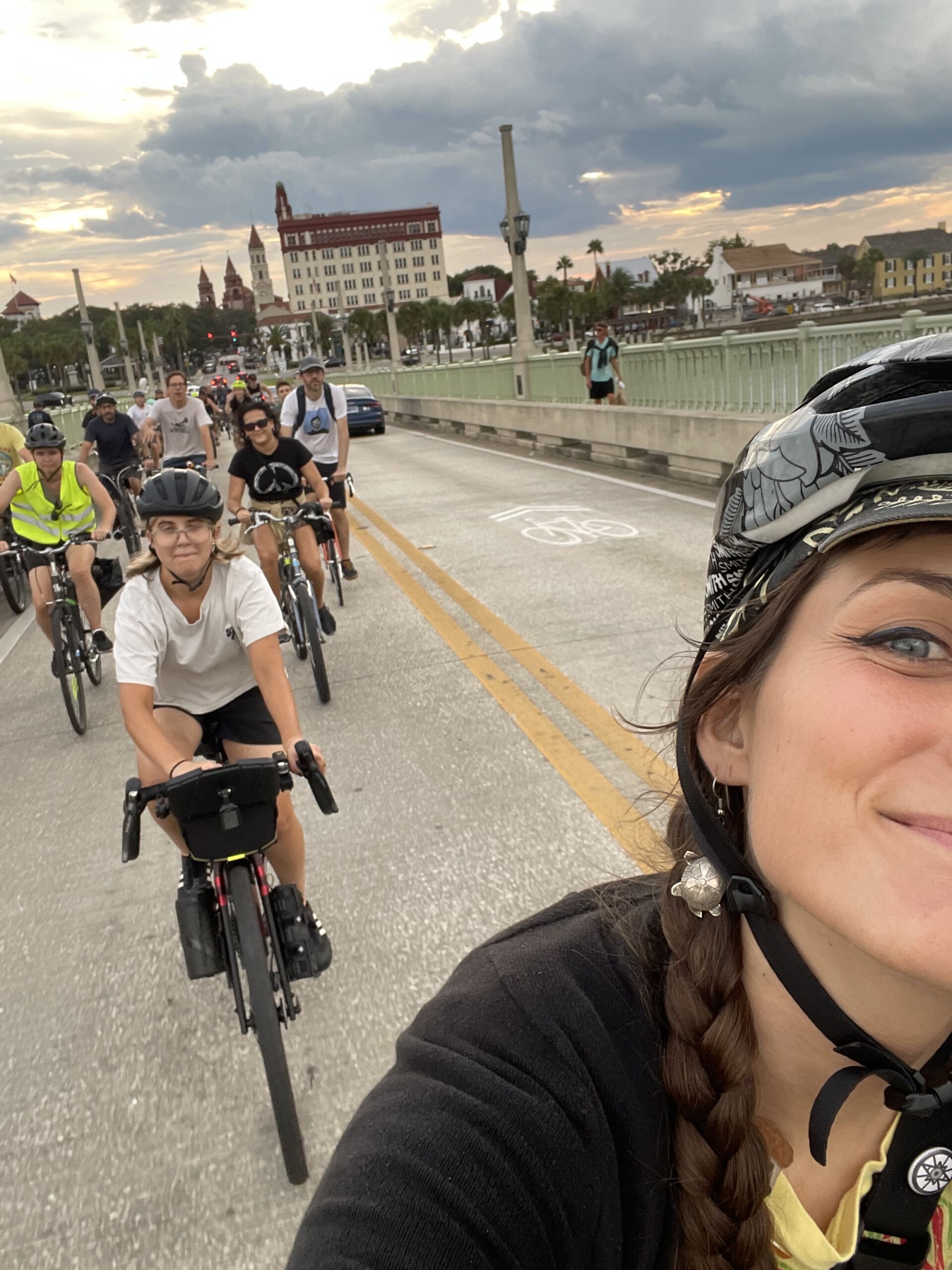
Rose says sharrows and riding on the sidewalk sound like a good solution, but cyclists have to yield to drivers because, as she tells cyclists for the group rides she organizes, “No matter what, car beats you.”
On top of that, pedestrian-packed sidewalks aren’t exactly the safest place, either.
“I’m from New Jersey, and I’ve commuted in New Jersey and New York, and even though there are more people and it’s more densely populated, I’ve never felt the fear I feel here,” she says. “In the last couple of years as St. Augustine has grown and traffic has grown, I feel less safe. There’s more cars, more traffic, more people living here and not a huge change to the infrastructure.”
Rose is far from the only person who bikes around St. Augustine. King Street is a part of the East Coast Greenway bike path network that connects Key West all the way to Canada. The St. Augustine leg is also part of the St. Johns River-to-Sea Loop, a 260-mile route that includes paved bike paths and roadways connecting St. Augustine to Titusville in Central Florida.
Parts of the trails are multi-use paths separated from the road, but others, like the King Street corridor, require cyclists to share the road with cars or use the narrowest of bike lanes.
“If I really could snap my fingers, I think there would be two or three days a week where cars weren’t allowed on the roads at all, and you just had to walk, or use public transit, or ride your bike,” Rose says. “In reality — bike lanes. We need bike lanes.”
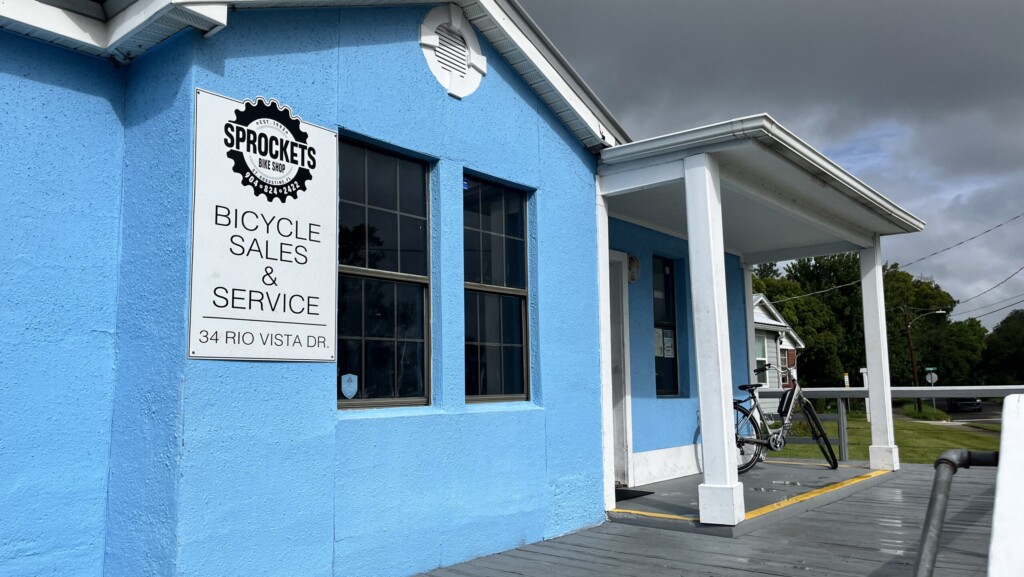
Looking to the future
While some on the St. Augustine City Commission have expressed concern that removing parking spaces Downtown could affect businesses and churchgoers, city staff is adamant that the King Street plan will improve the pedestrian and vehicle experience.
“It is a European city with a plaza at the heart,” Mayor Nancy Sikes-Kline said last week. “Although, when you go to Europe, what you see is no cars and only people in the plazas…I love that this plan is moving us closer into that direction.”
King Street’s changes aren’t set to even begin construction until 2028 at the earliest, and the city hopes to reduce congestion by then with the construction of a parking garage on West King Street as part of a new apartment development by the Broudy family.
Public Works Director Franklin says that the garage will be especially helpful when the city is at its busiest during the Nights of Lights around the holidays. Between the 700 new parking spaces expected in that garage and the new traffic pattern, he says there will be less standstill traffic.
Franklin says he wishes the city could have made bike lanes work, too. But he is happy that the city hopes to begin a bike share program, which will encourage people to park once and rent a bike to move around the city, later this year.



